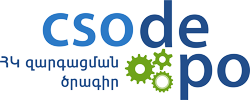Համաշխարհային գրականության հեռանկարները
Organized by: Forum Transregionale Studien and Max Weber Stiftung. Convened by: Zaal Andronikashvili (Zentrum für Literatur- und Kulturforschung, Berlin), Refqa Abu-Remaileh (Freie Universität Berlin; EUME Fellow 2018/2019), B. Venkat Mani (University of Wisconsin-Madison), Michael Allan (University of Oregon), and Bodhisattva Kar (University of Cape Town)
Call for applications [pdf download]
Ever since Franz Kafka introduced the idea of minor literature (kleine Literatur) in his diary entry on December 1911 to denote “contemporary Jewish literature in Warsaw and […] Czech literature,” the concept has revealed the relations between literature and politics, as well as the dynamics of literary development from the perspective of a perceived periphery. Nearly sixty years after Franz Kafka, Gilles Deleuze and Felix Guattari revived the concept of kleine Literatur, which they translated as littérature mineure, to signify the revolutionary potential of every literature, not just a literature of a small nation or minority. And more recently, the French literary scholar Pascale Casanova deployed Kafka’s ideas in the context of world literature.
Since Goethe, the concept of world literature has aimed to naturalize European literary developments as a sort of normative standard. And even if these Eurocentric foundations have been criticized and questioned for more than two decades, especially from a post-colonial perspective, there has yet to be an alternate literary historiography through which to imagine world literature otherwise. The Academy aims to question common assumptions of world literature through the prism of minor/small literature(s).
Three possible interpretations of the concept of small/minor literature(s) and the notions of “smallness” and “minor” itself will be interrogated from different perspectives:
— Small/minor literature in Kafka’s sense (writing in the language of the political and cultural minority);
— Small/minor literature in Casanova’s sense (from the perspective of the literatures of small nations or small languages);
— Littérature mineure in Deleuze and Guattari’s sense (a cipher for the revolutionary potential also within the literatures in the world languages).
With the concept of minor/small literature(s), the Academy addresses literatures that are often missing from the debates on world literature. We understand minor/small literature in the broadest sense to include literatures of smaller nations; literatures of immigrants, minorities and marginalized groups or individuals; as well as literatures in languages of former or contemporary hegemonic empires or states. We will focus on the political/revolutionary potential of literature in hegemonic struggles as well as the position and ambition of small/minor literatures in the larger linguistic/regional projects, such as multinational Soviet literature, Hindi or Arabic literature in the diaspora. Our conversations will address trajectories, turning points and temporalities in forms and media of the literary field. In contrast to prevalent modes of presenting world literature in opposition to national literatures, the Academy places the plurality of languages and cultures, as well as aesthetic and artistic practices at the center of debate.
In particular, we would like to investigate the following themes and questions:
— What are the limits of European models of literary and historical periodization?
— How can we rethink literary history beyond divisions of East/West, North/South, for example the literary history of avant-gardes, and the normativity of “Western” genres and poetics?
— How do literatures of migration, including migrant and refugee histories, and languages relate to the concept of minor literature(s)?
— How do “ultra minor” literatures (Møberg and Damrosch 2017) connect to minor/small literatures?
— What can “smallness” actually mean? Is it something given by history? A temporal phenomenon? Does smallness always provoke to be overcome? Or are there situations when it is celebrated and invented to integrate a literary community?
— How and with which strategies can smallness be overcome if it is a handicap by means of topoi, genres etc. and/or by the choice/mixture of language(s)?
— The idea of literature as a “(temporal) community” or space of literary communication that is built by literary texts that refer to each other;
— What is the role of infrastructures and technologies?
Contact: academies(at)trafo-berlin.de
The Transregional Academy is a format of the Forum Transregionale Studien and is part of the strategic cooperation with the Max Weber Foundation – German Humanities Institutes Abroad. It is supported by the German Federal Ministry of Education and Research (Bundesministerium für Bildung und Forschung, BMBF). For more information on the format please visit the Transregional Academies Blog: https://academies.hypotheses.org/
The Berlin-based Forum Transregionale Studien is a research platform that promotes the internationalization of research in the humanities and social sciences. The Forum provides scope for collaboration among researchers with different regional and disciplinary perspectives and appoints researchers from all over the world as Fellows.
The Max Weber Foundation promotes global research, concentrated around the areas of social sciences, cultural studies, and the humanities. Research is conducted at ten institutes in various countries worldwide with distinctive and independent focal points.
The Zentrum für Literatur- und Kulturforschung Berlin (ZfL) is a humanities institute for literary studies in interdisciplinary contexts that draws from a cultural studies framework. Its methods also engage with the structural transformations within historical-hermeneutic subject areas that have taken place in recent decades. In contrast to the study of literature at universities, predominantly organized by nationality, the ZfL fosters a broad concept of literature, but also uses interdisciplinary tools to fundamentally question the etiology of various literary concepts, their potential for the future, and the relationship between literature and other arts or cultural practices.
For more information please visit:
www.forum-transregionale-studien.de
www.maxweberstiftung.de
https://www.zfl-berlin.org
